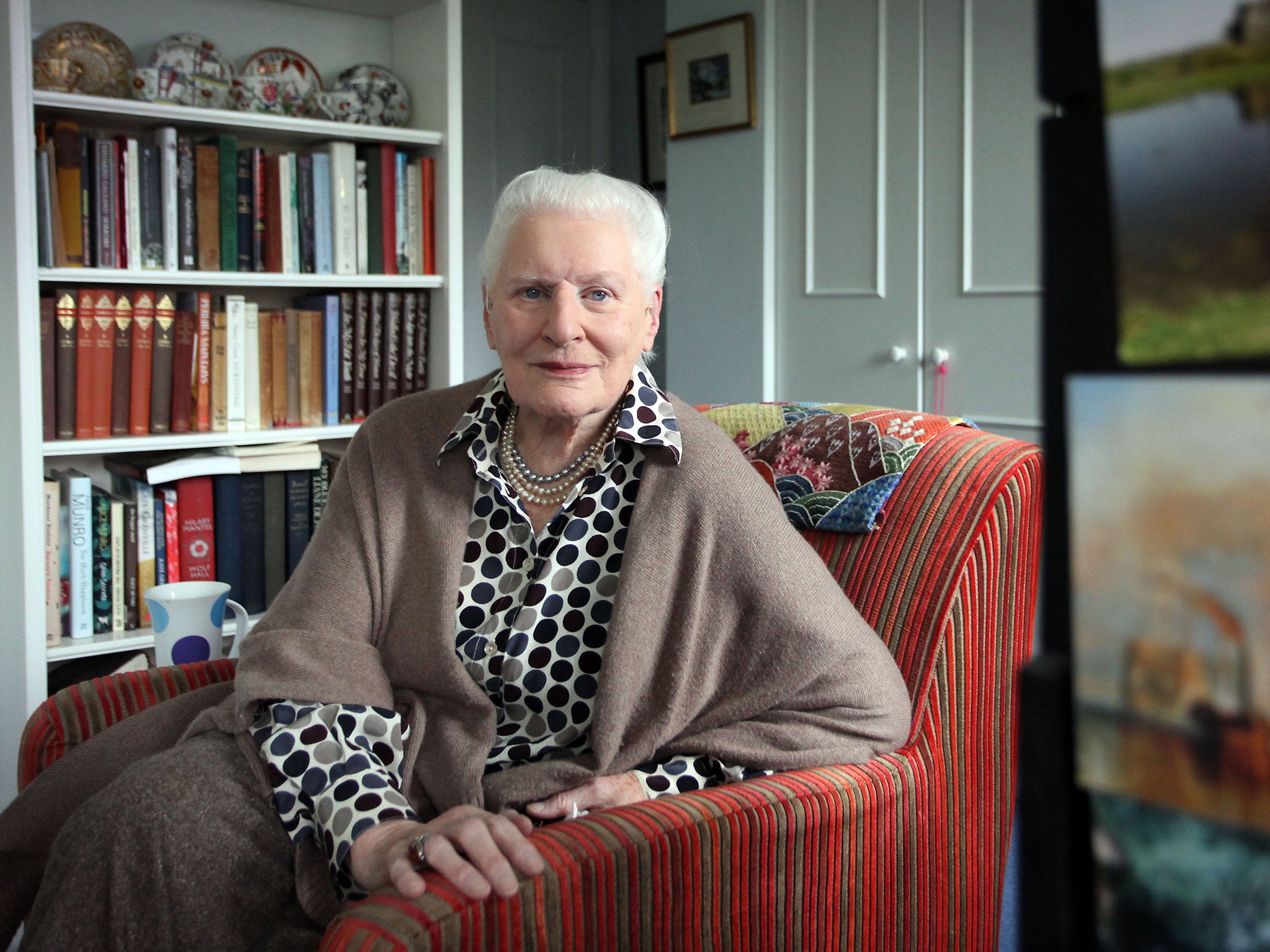As a young gay man, the life of centenarian Diana Athill taught me so much
Among other life lessons she shared, I learned that a life lived surrounded by others immediately like you – be that in terms of gender, age or political disposition – is a life wasted


Your support helps us to tell the story
From reproductive rights to climate change to Big Tech, The Independent is on the ground when the story is developing. Whether it's investigating the financials of Elon Musk's pro-Trump PAC or producing our latest documentary, 'The A Word', which shines a light on the American women fighting for reproductive rights, we know how important it is to parse out the facts from the messaging.
At such a critical moment in US history, we need reporters on the ground. Your donation allows us to keep sending journalists to speak to both sides of the story.
The Independent is trusted by Americans across the entire political spectrum. And unlike many other quality news outlets, we choose not to lock Americans out of our reporting and analysis with paywalls. We believe quality journalism should be available to everyone, paid for by those who can afford it.
Your support makes all the difference.Diana Athill, the famed literary editor who has died aged 101, recently described her first encounter with a homosexual – with whom she shared a bed once – sometime before the war. “I only just knew what a homosexual was,” she said. “And I thought, ‘Here I am! In bed with a homosexual, drinking whisky. This is bliss! This is heaven! It instantly made me accept people for what they were.”
In the middle of last century, while working as a literary editor, Athill published the greats: Jean Rhys, Philip Roth and VS Naipaul were on her books, but it was later in life that Athill’s stigma-breaking memoirs made her famous beyond the shielded world of literature.
I can’t remember when I first discovered Athill, but I can remember the result of that discovery: my sister presenting me with a copy of Athill’s collection of essays memorably entitled Alive, Alive Oh!: And Other Things That Matter one Christmas time.
I explained how a woman in her late-nineties writing a book with such a title inspired me, because before then, I hadn’t imagined anyone in their late nineties writing anything, let alone appealing distinctly to my verve and youthful lust for life.
I explained how, for a young man beginning to discover life, Athill’s remarkably honest writing, which often reduced sentimentality to tatters, made light of love and quaffed at seriousness, rid my young brain of the poisonous stereotypes I’d unwillingly harboured about the attitudes of the very old.
I went to see Athill speak, weeks away from her 98th birthday, at Damian Barr’s Literary Salon, an intimate event held on the roof of the hip Mondrian Hotel. I didn’t introduce myself to Diana – I felt like I had nothing to say she hadn’t already heard – yet that night, as Athill read excerpts she’d written about delightfully “louche” romantic cruises in the mid-century, I realised the very simple truth that the very old remain unchanged from their younger selves.
I felt more in awe of an old lady than I had of any musical icon from my youth. As Athill left the bar that night, I overheard her spiritedly compliment the decorative gas lamps laid by the bar’s seating, and in that moment I learned that even away from the public eye, Athill exhibited a drive to passionately convert any small thing into uplifting commentary.
Athill mixed such refreshing social commentary with her trademark sharp, damning critiques. “My two valuable lessons are: avoid romanticism and abhor possessiveness,” she wrote in Alive, Alive Oh!: and Other Things That Matter. Admittedly the “third woman” in relationships, Athill embraced difference; subverted traditional ideals about commitment and exploited her own life’s experience, writing extensively about taboo topics, such premarital sex in a different age, and being thankful for her own miscarriage.
Her matter-of-factness was surely, in part, the result of a long life lived, but – regardless of gender or political disposition – Athill, speaking as I knew her, towards the end of her life, gave me courage to believe in my own impending old age. She taught me that being old – though she cited herself as “lucky” – could actually be really quite fun, and that, if I’m to be so lucky as her, I could be writing for half a century (heck, even more) yet.
Athill taught me that a life lived surrounded by others immediately like you – be that in terms of gender, age or political disposition – is a life wasted. Just as on Twitter we should follow, and listen to, those we disagree with to challenge of our perceptions of life, in our day-to-day existences we should spend time with those we think we share the least in common with, such as those in their very old age.
Plenty of charities, such as The Silver Line and Independent Age, run intergenerational schemes encouraging young people to communicate with their seniors. Science has proven that such experiences are invaluable for older people with dementia too, let alone the simple and priceless value in learning about how day-to-day life was in, say, the middle of last century.
Progress is afoot. Intergenerational holidays are on the rise, with more and more grandparents spoiling their grandchildren with trips, leaving the parents – who inevitably work – at home, in order to spend precious time with those 50, 60 or 70 years their juniors.
A friend of mine who works as an art and dementia programme manager, encouraging older newbies to pick up painting in later life in association with the Ben Uri Gallery and Museum, recently gave me some advice for sparking up new relationships. “Ask them anything,” she said. “I don’t understand how you can struggle to find conversation – these people have lived a whole life.”
Athill felt much the same as I do about intergenerational friendships and communication as a whole. “It’s not surprising, perhaps, that we easily slide into a general pessimism about life,” Athill wrote in Somewhere Towards The End.
“But it is very boring and it makes dreary last years even drearier. Whereas if, flitting in and out of awareness, there are people beginning, to whom the years ahead are long and full of who knows what, it is a reminder – indeed enables us actually to feel again – that we are not just dots at the end of thin black lines projecting into nothingness, but are parts of the broad, many-coloured river teeming with beginnings, ripenings, decayings, new beginnings – are still parts of it...
“And our dying will be part of it just as these children’s being young is, so while we still have the equipment to see this, let us not waste our time grizzling.”
Join our commenting forum
Join thought-provoking conversations, follow other Independent readers and see their replies
Comments